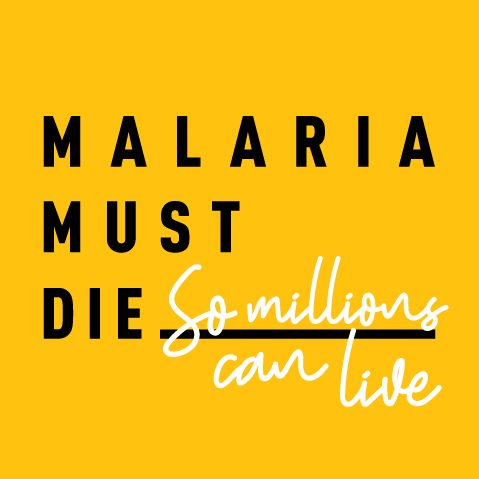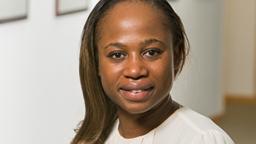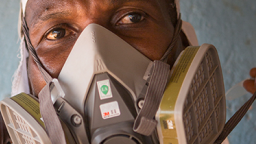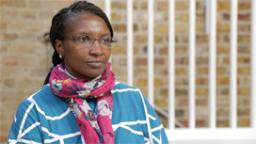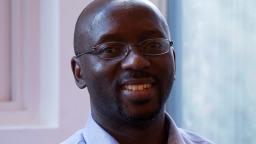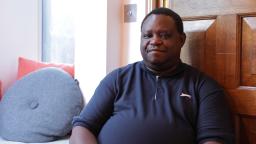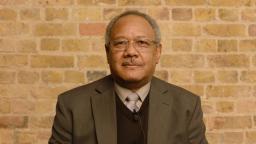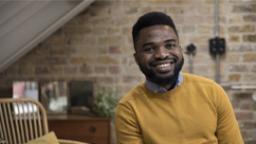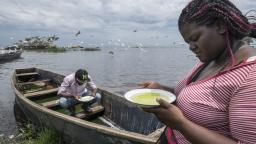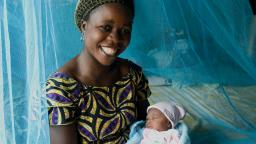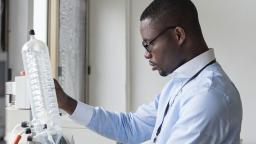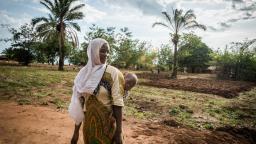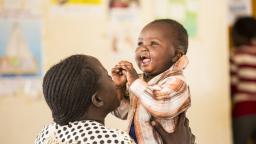"I believe that it is a shared responsibility. There is a sense of hope that if each of us commit to putting our best efforts to eradicating malaria, collectively as a multi-stakeholder partnership, I think we could get there. We could end malaria."
Kenyan-born, Bridget Wachira is a Director in the Global Health Unit at GlaxoSmithKline, a British multinational pharmaceutical company, also known as GSK – a huge force in the malaria fight.
Growing up in Nairobi, it was only once she got to university – travelling and meeting people from other regions of Kenya – that she understood the true impact malaria can have, particularly on children and pregnant women.
“I have witnessed the devastation, the sadness, the loss, the despair especially of mothers who have lost their children to malaria,” she says.
Every mother goes into labour to give birth, hoping that their child is the next president. You don’t imagine that their life could be cut this short.
When Bridget left university and joined GSK, she learned a lot more about malaria and the scale of the burden facing malaria-affected countries. Bridget joined GSK as a medical representative in the Kenya team and has since worked in a variety of roles, many of which focused on improving access to medicines and vaccines for countries burdened with some of the most challenging health issues.
“Through my work in GSK in the last 20 years in Africa, I’ve had the privilege to witness the effort, interventions and solutions we have that can help us.” Bridget believes that amongst other much needed interventions, continuing to invest in developing and distributing the malaria vaccine is one of the most critical components of the fight to end malaria.
Now, the Covid-19 pandemic has brought health issues to the forefront of discussion around the world, and Bridget says that people have begun to realise the importance of health security – it is not just about an individual’s health, but everyone’s. Pre-Covid-19, diseases have been thought of as separate and treated as different issues. Now, Bridget says, we can fight them together. “We just need to put more effort behind it, we need to educate ourselves, we need to commit ourselves, and we know there are gains made every time you eliminate one of the world's health problems, we become a healthier nation and we become collectively as humanity better in doing the things that we’d like to achieve.”
Every two minutes, a child dies of malaria. “These children could be the scientists we’re looking to develop a solution to the next pandemic. These children could be the people we are looking to drive world peace tomorrow.”
